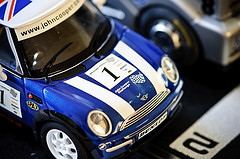Single mothers are too busy working, food shopping, plastering cut knees and spending valuable time with their children to have time to do the simplest of car checks.
Fortunately, half of the things a single Mom needs to do to her vehicle for general maintenance can be accomplished either while she is driving or when she is filling up with gasoline.
Below are the 3 things every single Mom should know about her vehicle and the 3 most basic vehicle maintenance procedures that almost every single Mum can do herself.
A few things single Mums must know about their cars
The Little Things
It is the little things that add hundreds of thousands of miles to a vehicle, hundreds of miles to tires and years to the brakes.
Heat
The most important thing on is the temperature gauge. The last thing you want to happen if for your car to overheat.
If your engine is overheating, pull over immediately. If you catch an overheating engine in time, you will save yourself a lot of time and money.
Overheating can be caused by a variety of things, but a high percentage of the time it is caused by having a low coolant level.
For more information please see Fluids section below under Little Things.
Cold
If you live in an area where the temperature drops below freezing regularly, you must warm up your car before you begin driving. Driving a vehicle with a frozen engine block can cause serious, very, very expensive damage.
Strangely, it is heat that destroys a cold engine. If the engine block heats up more quickly than the fluids inside the engine — the oil and anti-freeze — you can crack the engine block or the heads or the head gaskets. Cracks occur when the inside of the engine heats up much quicker than the outside of the engine.

Infographic courtesy of http://www.carcare.org/
The 3 Most Important Little Things
Fluids
Check the oil level, the coolant level and the brake fluid level every time you put gasoline in your vehicle. It may seem like a hassle in the short term, but you would wish you had completed these simple checks when your car is in the garage. Without the proper amount of coolant, your vehicle will overheat. Without the proper amount of oil, friction inside the engine will cause you vehicle to overheat. Without the proper amount of brake fluid, your brakes will overheat.
Coolant, oil and brake fluid are simply means to prevent a part of your car from overheating.
While you’re checking the oil, coolant and brake fluid levels, you may as well check your wiper fluid level. You’re there anyway and it’s the easiest fluid level to check!
Pressure
We have all heard and read it a million times, keep the proper amount of pressure in your tyres. We all know it prevents unnecessary wear and tear on the engine and that it keeps money in our pockets because it increases fuel economy. We also know that it prevents the treads on the tyres from wearing down so quickly.
However, most of us don’t check the pressure in our tyres regularly… but we really, really should.
So, just to parrot the points again for you, keeping tyres inflated to the proper amount saves you money, saves your vehicle and it saves your tyres!
For more information about checking your tyres watch the following video,
Signals
There is only one means of telling other drivers on the road what you are doing, your lights. If your signals are working and you get into an accident, odds are you will be financially responsible for the damage to the other driver’s vehicle even if he was at fault.
Check your lights every time you put oil in the car.
Some of these tips and checklists can seem relentless, but as a mother there is nothing more imperative than your own and your children’s safety. By being aware on the road you are able to cut down the chance of having an accident buy a large percentage. Safety always comes first.
For more tips about checking your car, head over to Motor Marque
Author Bio: Rae is a fan of Heels, Wheels and Handbags, follow her on Twitter @MotorMarqueRae



Great article! As a tire expert, I cannot stress enough the importance of proper care and maintenance. You should not only be concerned with tyre pressure, but also pay attention to tread wear. When your tire tread becomes to low, the vehicle may not respond as quickly to sudden stops. Also, the vehicle will be more likely to lose control in bad driving conditions (rain, snow, mud). Ultimately, this could lead to an accident that may cost more money than it would have to simply replace your tires.